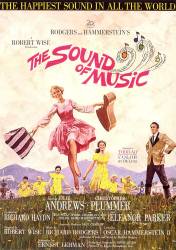
Question: Gretel was 5 years old and the mother died seven years ago. Who is Gretel's mom?
Answer: However when Captain Von Trapp gets the children to step forward and introduce themselves to Maria he states that their mother died 7 years ago.
Not in the 1965 film, perhaps in another version. In the 1965 film the only thing he says about his late wife when he first meets Maria is "you'll be the 12th governess...since their mother died." When he has the children introduce themselves, he only advises Maria to pay attention to their signals and names. Later after he leaves and the children say how old they are, Marta says "I'll be 7 on Tuesday."
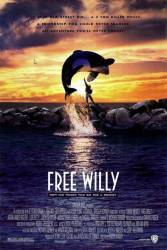
Question: In reality, do orcas actually understand English? Willy seems to understand Jesse when Jesse teaches him tricks.
Answer: While sounds and words can be used to alert orcas and dolphins, they recognize the hand signals and movements as to what to do.
Answer: Dogs can learn words up to the level of a 3 yr old, and whales are smarter than dogs, so definitely.
Dogs don't learn words, they start to recognize the sound that comes with a certain word like "stay" or "fetch", it's got more to do with the intonation than the actual word. They don't know what the word actually means. They can't imitate it nor can they recognize it in a sentence.

Question: At Jack Jr's birthday party, you don't see Shelby's head at all... It was her 'body' because later that day she is wearing the same shirt when she gets her hair cut. Was there a sit in for Julia Roberts in that scene?
Answer: I believe it is because the child playing Jack Jr. was basically crying through this whole scene, as you can see. It's most likely his (actually her, as the real baby was a girl) real mother holding him to calm him down. Also, when the family is saying "Blow, blow," you can hear a female voice that is neither Julia Roberts or Sally Field.
When she is sitting with Jack Jr, it is before she goes to get her hair cut. When she tells M'Lynn she wants to cut her hair, she is wearing it in a banana clip and you can see the hair past her shoulders. When "she's" sitting with Jack Jr, there's no hair to be seen. Total stand in.
Daniel Camp is the actor who played Jack Jr.
Along with Daniel two other children played Jack Jr, C. Houser and Clara Gabrielle.
Answer: Yes, there was a sit-in. My mom was Julia's double for this movie. Jack Jr. was played by two babies, my brother being one of them. My brother was upset during this scene and was being held by our mom.
Answer: I believe that Jack Jr is being held by a man. When you freeze the scene, you can see facial hair on the chin and when the person says "blow, blow" it sounds to be a man trying to sound like a woman.
I actually think it's a man, too. The person's hands seem to be deliberately hidden.
Answer: I agree with the other answers that this was probably the child's real mother and not Julia Roberts. It was probably because the boy was upset, but major movies do use second and third-unit directors and often shoot scenes using a body-double as a stand-ins so that other scenes can be filmed simultaneously with the principal actors. It shortens the film's production time and is more economical. It's possible that Roberts was shooting another scene elsewhere. Also, it's definitely not Jack's father (Dylan McDermott) holding him as he is sitting next to Shelby and is saying "blow." It was also not Shelby's father (Tom Skerrit) holding Jack, as he is videotaping the party at the opposite end of the table.
Answer: It was said that the child actor was crying, so they had his real mother sit with him in that scene instead of Julia.
Answer: No. It wasn't a man. It was the child's real mother holding her kid during the scene. The kid wouldn't shut up with the crying and only would calm itself sitting on the mother's lap.
Answer: It's Shelby's father that is holding him.
Shelby's father is across the table taking pictures.

Question: How did Larry find out what club Alice/Jane works at? Did he just find her there by coincidence?
Answer: It appears so. Nothing else suggested he knew where she worked. More that he was just going to different clubs and drinking and came across the club Alice was working at.
I think he knew exactly where to find her. He's a doctor and often doctors are known to have that "God" complex. I think he wanted to gain control of his relationship with Anna. To win Anna back he had to manipulate all the players including Alice/ Jane. He probably researched her and found her. That's why he knew Alice/Jane was not her real name. He was low key stalking all of them, to get Anna back.
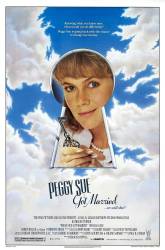
Question: I never understood the significance of the girl in the wheelchair at the reunion. Peggy Sue makes a big deal out of the girl but never in her "flashback" do we see this character.
Answer: You DO see Rosalie in the past. She hosts the party at which Charlie and his group sing. And Jim Carrey asks for the lights to be turned out. She walks, and begins to dance with her boyfriend.
No, that was Maddie's party. Peggy Sue's mom said so when she asked her why she wasn't ready for the party, when Charlie came to pick her up.
I finally see her, thanks! She's to the left of Peggy Sue and her girlfriends as they watch Charlie and the guys sing. Then she's the girl dancing on the counter at the coffee shop when Peggy Sue meets with Michael Fitzsimmons the first time. I always wondered about the Rosalie plot hole.
I think we DO see Rosalie before her accident-she is the girl dancing on the counter at the coffee shop when Peggy Sue goes for coffee and a donut and runs into Michael Fitzsimmons. Peggy Sue pauses and watches her for a moment.
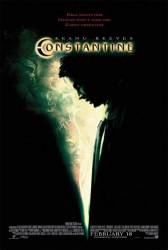
Question: Even though Isabel committed suicide, shouldn't she have gone to heaven? She willfully sacrificed herself to insure that Mammon couldn't cross on to earth so in a way, she was saving billions of people, so that should have guaranteed her entry into heaven.
Answer: Sin for a good reason is still sin, and as Gabriel says earlier, you can't buy your way into Heaven. Real Catholic dogma, however, doesn't hold the mentally ill as condemned for committing suicide.
Except Isabel wasn't mentally ill. She saw angels and demons just like Constantine did. It was her parents who believed she was mentally ill.
While suicide is a mortal sin, it's shown later (as in major plot point) that sacrificing yourself to save the world is a redeeming act.
Yes, but Constantine also said "My parents were normal. They did what most parents would do. They made it worse. You think you're crazy long enough, you find a way out" which could relate to Isabel losing her sanity in a way as well because of her family and how they saw her. The whole Isabel's sacrifice is added by the novelization but the movie is ambiguous about the suicide.
Except Isabel wasn't mentally ill. She saw half breeds just like John did.
Sacrificing yourself for others isn't a sin.
Answer: If a soldier jumps on a grenade and dies to save his fellow soldiers, it's considered giving one's life for others. To my understanding, that isn't considered a "sin." If it was a mental health issue, a just God would give her a pass. If she was doing it to thwart Mammon's plans, again she was sacrificing herself. If she did it to get Constantine involved to help stop Mammon, again is was self sacrifice. (Notice how she says "Constantine" just before jumping when her sister views the video?). As a plot device, I understand it, but from a theological standpoint it is weak.
Answer: It is shown in the movie that it was Balthazar who whispered into her ear, gave her suggestions. Eventually she committed suicide to escape that, to escape her torment. She certainly didn't sacrifice herself to keep Mammon out because Mammon needed twin psychics, one in hell and one on Earth to do it, which Balthazar achieved for him.
The film doesn't give information about the need of having one twin in hell and the other on earth to complete Mammon's plan; the movie states Mammon needs a powerful psychic and God's help. It isn't shown either that Balthazar was the one whispering to Isabel's ear considering she was apparently hearing Hellspeak, but no individual besides her appeared on the death scene; therefore, it was left ambiguous. Otherwise, provide evidence of the statement above.
When John and Angela are walking back to the elevator after taking care of Balthasar they specifically mention Mammon needed twin psychics. The only reason would be for their connection. One is in hell, the other on Earth. Through their connection Mammon is able to posses Angela. As for the second thing. When Isabel commits suicide you both hear Balthasar whisper to her and she has the mark on her wrist, like Hennessy had on his hand palm, the sign of Mammon. They wanted her in Hell.
The dialogue, when they are walking towards the elevator, is "Constantine: Beeman said Mammon needed divine assistance to cross over. How's the blood of God's only son? Ángela: The stains on the spear. Constantine: Yeah. Ángela: So he gets the spear. He still has to locate a powerful psychic. Constantine: Not really. Ángela: Twins." Angela says "twins" after hearing Constantine say "Not really." (while looking at her) which made Angela realise that she was Isabel's replacement as a powerful psychic since they had the same gift, but the former's was dormant up until that moment. It's not because the plan needed one in hell and the other on earth. That's never stated as far as we know from the information provided by the film. As for Balthazar, it's never stated it was him who whispered to Isabel. That's an assumption based on hearing the voice alone. Also, the mark appeared on the guy's hand at beginning of the film after he found the spear and Balthazar was probably not there.
It's not an assumption when it's his voice. It doesn't all have to be "stated." And the whole twin part is just a coincidence? Are you saying Gabriel and Balthasar found twin psychics so they have a backup if one of them dies? That's ridiculous. They needed twin psychics specifically, and they make one of them commit suicide. That's not just a random thing, it's what needed to be done. And it's Mammon's sign, not Balthasar's.
It's an assumption because there is insufficient evidence to prove it, and there were other voices in the film to assume it was specifically Balthazar's given that Angela heard a similar voice calling her name when she was in hell and Mammon appeared, which could indicate that maybe it was Mammon who whispered to Isabel too but still not clear though. It's more speculation. Yes, not everything has to be stated since some things are implicitly given although it also depends because it can become ambiguous if it lack details which is open to interpretation, but the movie dismisses any possibility of your theory of "one in hell and the other on earth" by stating what the "villain" needed and with that the argument doesn't work. Otherwise, it would be a plot hole for creating an inconsistency with the rules established before. Angela just realised she was the powerful psychic since they had the same gift, so Mammon didn't have to locate another one since it was there in the other twin.
There is no inconsistency with the rules, there is help from god, there is a psychic. All that fits, the Hell Bible just wasn't specific enough, they didn't know the full plan. There is something significant about them being twins. Both because Isabel was killed and Angela and Constantine realise that's what Mammon was looking for.
Now, all that is just speculation, and misinterpretation of what has been explained in the reply above yours. Not continuing the discussion.
Answer: The film itself can't be blamed for that really because it was left ambiguous; the novelization added the part of Isabel's sacrifice to the story. If we go by what the film gave us then Isabel might have been an unstable person considering even Angela didn't back her up about what they could see which could've led her to believe that maybe she was indeed crazy, and as Constantine said "You think you're crazy long enough, you find a way out." Perhaps she just wanted to end everything that was happening to her. There isn't enough information in the movie to confirm or deny it.
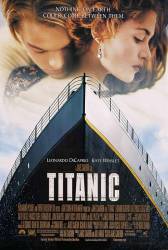
Question: How did rats manage to get on board?
Chosen answer: During the several years it took to construct the ship probably, or in any of the supplies/food brought on board, or in the furniture brought on board. A single pregnant female rat can be responsible for thousands of rats in a very short space of time (the offspring are not too choosy about who they breed with).
A pregnant female rat could have made a home in a underneath a third class couch and had the other rats then all the females would have baby rats quickly.
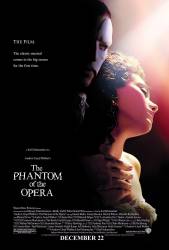
Question: What does the Phantom eat and what does he spend his salary on? Presumably he can't just go to the shops etc with his mask on. If he doesn't leave the opera house where does he learn his skills like driving a carriage, who does he practice sword fighting with? Wouldn't his health suffer if he spends decades living in this damp cold rat infested place wading through lakes all the time? He even complains about it being cold himself at one point. Surely if it snowing outside his lair can't be warm but he's not wearing much.
Answer: First, it is established in the movie that he is dependant on Madame Giry and it is presumed she does his shopping for him. As for learning skills, it is established he is a genius and one can assume he is very well read. Additionally, for single handed skills, like driving a carriage, he can possibly go out at night to learn them. As for his living conditions, the human body adapts well to continuous conditions, it is how the people in Siberia can tolerate lower temperatures better than those who live close to the equator. Lastly, one can easily assume he has other (warmer) clothes that he wears off camera.
There is a character simply known as 'the Persian' He has known the Phantom his whole life and would have taught him horse driving. In the book, the Phantom has a life before the opera house where he would have learned fencing and torture. Also, the phantom knows all the secret passages. When it's cold he leaves his lair and lives someplace warmer.
You're totally right but also, in addition to your mention of The Persian, in the book it is he that is the Phantom's only "friend" or whatever but in the movie there is no Persian exactly but the two Characters Madam Giry and The Persian from The Phantom of the Opera by Gaston L. Are both combined as one, to be know as Madame Giry in the 2004 flim.
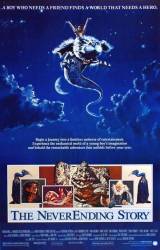
Question: What is the meaning of the rock paintings that Atreyu finds, that seem to sum up all his adventures? (This is right before the fight with that black wolf-creature.)
Answer: The meaning is basically all his adventures have been fortold and recorded, kind of like as if they were part of a book.
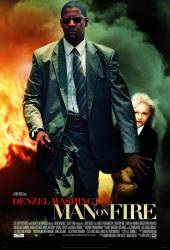
Question: Is this a true story? The ending with text "John W. Creasy" and lifetime dates makes it seem like a true story.
Answer: Daniel "La Voz" Sanchez was based off the kidnapper Daniel Arizmendi López and Aurelio Sanchez was based off his bother Aurelio Arizmendi López, so some of it maybe true but not a lot.
Answer: No, the movie was based on a fiction book. The book takes place in Italy, and the kidnapping ring is run by the mafia.
Answer: The movie was completely lifted from a much better 1987 version of the same story.
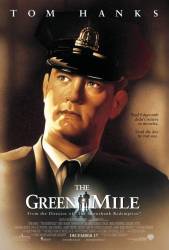
Question: When the guards are talking to Percy in the restraint room, Paul says he knows he sabotaged Del's execution. Why did he let him get away with it?
Chosen answer: Percy's aunt is married to the state Governor, giving Percy powerful connections. All it would take is one phone call from Percy and Paul and the other guards could lose their jobs and if Percy wanted to, never find jobs again. Something Paul or his friends didn't want to happen.
The characters talk about this several different times in the movies, how political connections can ruin careers.
Answer: In addition to previous answers, it is probably also worth mentioning that they will never be able to prove it. Percy mentions multiple times that he "didn't know the sponge should be wet," even when they are back in the Green Mile and only Paul and the other guards are around, indicating that that will be his defence when they ever make it into a thing, knowing that they will never be able to prove otherwise.
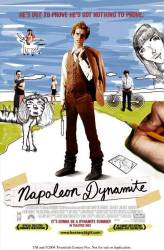
Question: Why does Napoleon, who appears to be a junior or senior in high school, ride the bus with a bunch of little kids?
Answer: Because it is such a small town that the school system can not afford buses for grade level so they have to share them, plus it has comedic value as well.
Small town schools are usually K-12. The other older "cooler" students drive to school or get ride with their friends.
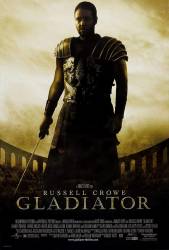
Question: I don't know whether this is a mistake or if there was a certain reason for it but, at the end of the movie when Maximus tells Quintus to free his men, Quintus turns to the line of guards standing behind him and says, "Free the prisoners, go!" Two of the guards standing next to each other immediately go to free the prisoners, and the rest of the guards don't budge. How did those two guards know that the orders were given directly to them?
Chosen answer: Because they would be the ranking soldiers, and accustomed to being given orders. Being disciplined, they would obey Quintus without question. The legions would necessarily have soldiers assigned to following orders at different times, similar to how a captain would give an order to a full room, and the first mate would be the one to carry out the order.

Question: Does Chip really have as many siblings as there are cups in the kitchen? Seems a bit too many, and also they aren't seen as real children at the end of the movie.
Answer: The servants in the castle are transformed into enchanted objects because of the spell, but there are still plenty of other objects in the castle which were not originally people.
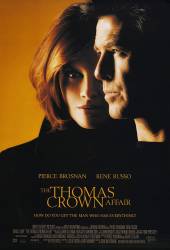
Question: How does he fold the Monet in half to fit into the briefcase? Originally I thought he'd separated it from the wooden frame (ie. just a canvas), but when he takes it out back at his house he holds it up, and the wooden frame's still in one piece. Also, surely folding it in half would crack the paint, but despite the painting being twice the width of the briefcase (it fits snugly when the case is open), he then shuts the case down to a "normal" size. Any ideas?
Answer: I believe that the Monet that Crown hides in his study is not the one that was stolen, it is a copy that he already had prepared. He can enjoy the copy knowing that the original (with the broken spreader bars) is also in his possession. The stolen original then goes to the forger who repairs the broken spreader bars, and then paints another painting (using water soluble paint) over the Monet, so he can "return" it to the museum 3 days later. It gets more complicated when he discovers that Russo is on to him so he has a second forgery made (even the edges forged to match) over the top of "Dogs Playing Poker." He doesn't know if it will be necessary, but given his research into his new adversary, he concocts this contingency. It is likely that he has many contingencies in place, but the "Monet with a ghost underneath" is the only one we get to see. Of course for my theory to hold water, there must be (or have been) that earlier forgery - unless it has been destroyed.
It's not the forgery that he takes out of the briefcase. Even if it were, he still put the Monet in the briefcase at the museum and would have had to break the frame to close the briefcase, thus also breaking the paint and tearing the canvas. The real answer is that it is just something that couldn't really happen, and the movie people don't want the viewer to notice.
Answer: The only explanation I can come up with is that the inner part of the frame is precut. With the frame cut that way it would allow the picture to fold, but when unfolded it would be fairly rigid with the exception of bending it forward at that point. When he pulls the painting out, it still holds the square shape of the frame. Best I can come up with.
Answer: He doesn't fold it. The frame is solid. It's just movie editing to make the viewer think he put it in her briefcase. You can't fold a Monet.
He absolutely folds it. We see him put it in the case and him then shut the case, folding it in half.
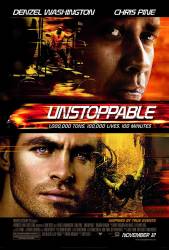
Question: Wouldn't it be easier if Stewart just attached his cab to 777 and any other qualified personnel with him just walked from Steward to 777 and took control of it, too easy perhaps? Or the welder could have someone with a BB gun in the back to shoot the famous "kill switch" next to fuel tank, instead of the cops trying to?
Answer: Yeah, but it wouldn't be nearly as dramatic.
Answer: Put a man in the back of the truck with a broomstick and use it to push the fuel cut off switch as the truck drives alongside the train.
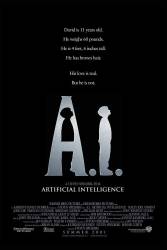
Question: Why did Teddy growl in the helicopter when the trio arrived at Manhattan?
Chosen answer: It was dangerous for Mecha to go there; he was afraid for David's safety.
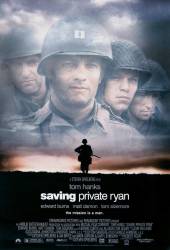
Question: After Capt Miller gets briefed on his new mission to rescue Pvt Ryan and enlists Upham for the mission, there is a long shot of the beach. What are those Zeppelin-like things that are floating around, tied to the ground? What are they good for? (00:39:50)
Answer: These were barrage balloons, commonly used during the war. They are used to stop low level bombing and low level fly bys by enemy fighter planes. The cables attached to the balloons are designed to cut through the wings of the aircraft and to bring them down, so any pilot would have to fly above them, and the balloons would also restrict the view from above.

Question: Did the actors do their own singing?
Answer: Yes.
Answer: Yes.
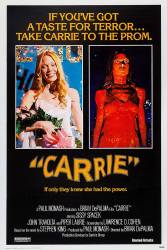
Answer: In the film, the Mother Abess explains to Maria that the Captain Von Trapp's wife died "several years" ago. This is commonly misheard by viewers as "seven years." In reality, the actual mother of the Von Trapp children was Agathe Whitehead, who died of scarlet fever in 1922, just four years before Maria came to the Von Trapp home, initially as a tutor (not a governess) in 1926.
Michael Albert